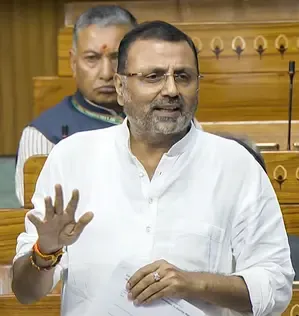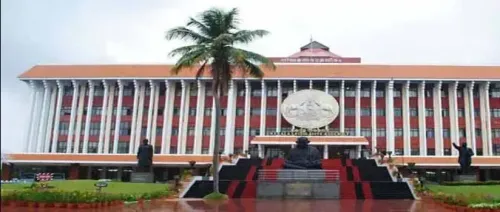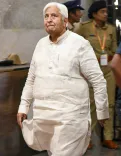Did Congress Drive Nepal Closer to China? Nishikant Dubey Critiques Rajiv Gandhi’s Foreign Policy

Synopsis
Key Takeaways
- Nishikant Dubey's strong criticism of Congress highlights the complex history of Indo-Nepal relations.
- The impact of Rajiv Gandhi's personal grievances on diplomatic ties raised concerns about individual influences on foreign policy.
- Economic measures taken by India were seen as counterproductive and led Nepal towards China.
- The situation underscores the importance of historical context in current geopolitical dynamics.
- India's foreign policy continues to be a topic of debate, reflecting past and present challenges.
New Delhi, June 16 (NationPress) BJP MP Nishikant Dubey has made a pointed criticism of the Congress party, claiming that its foreign policy is “family-centric” and has led to enduring adverse effects for India and its neighboring countries. In a post shared on X, Dubey stated, “The foreign policy of Congress has been focused on a single family, and India continues to bear the consequences. The world’s only Hindu nation is no longer in existence.”
He referred to an incident from 1988, where he accused former Prime Minister Rajiv Gandhi of mismanaging India’s relationship with Nepal over a personal slight.
Dubey recounted that Rajiv Gandhi's desire to visit the Pashupatinath Temple— a site traditionally limited to Hindus— was met with refusal.
“Just as non-Muslims cannot enter Mecca, non-Hindus are barred from entering Nepal’s Pashupatinath Temple. Rajiv Gandhi took this denial personally,” Dubey asserted.
He claimed that as a reaction, India raised customs duties on products destined for Nepal.
“This economic pressure resulted in Nepal leaning towards China. To avoid further tensions, King Birendra entered into an agreement with China for arms and food supplies,” he explained.
Additionally, he claimed this led to India enforcing an economic blockade on Nepal in 1989, which deteriorated bilateral relations and created a void that China filled.
Dubey further alleged that Indian intelligence agencies played a role in shaping Nepal’s political landscape.
“RAW officer Amar Bhushan, who is still active, was instructed to oust King Birendra and support the rise of Prachanda, a leader backed by China. Consequently, Nepal is no longer recognized as a Hindu nation,” he asserted.
These statements from the BJP MP occurred as Congress critiqued the Modi government’s foreign policy, labeling it ineffective.










